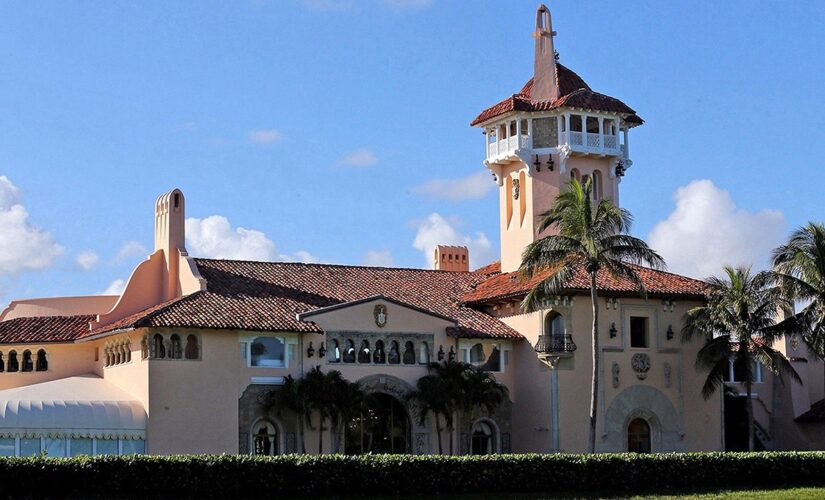NEWYou can now listen to Fox News articles!
The special master candidate proposed by former President Trump and approved by the Justice Department signed off on a Foreign Intelligence Surveillance Act warrant to surveil Trump campaign aide Carter Page–before the FBI misconduct surrounding that application was discovered.
U.S. District Court Judge Aileen Cannon ordered the appointment of an independent special master to review the records seized by the FBI during its unprecedented August raid of Trump’s Mar-a-Lago.
Among others, Trump’s lawyers proposed retired chief Judge Raymond Dearie to serve as special master, and the Justice Department approved Dearie as an appropriate candidate, citing his “substantial judicial experience” presiding over cases “involving national security and privilege concerns.”
Judge Cannon has the final say on whether to accept Dearie, and it is unclear when she might announce her decision.
JUSTICE DEPARTMENT SAYS IT SUPPORTS ONE OF TRUMP’S NOMINEES FOR SPECIAL MASTER
Dearie was nominated by former President Ronald Reagan in 1986 and served on the U.S. District Court for the Eastern District of New York. He later served seven years on the U.S. Foreign Intelligence Surveillance Court (FISC).
Carter Page participates in a discussion on the Justice Department and the intelligence community on Capitol Hill, May 29, 2019. (Chip Somodevilla/Getty Images)
But while Dearie is a Republican nominee, he has a history with the most recent Republican president. While serving on the FISC, Dearie signed off on and approved the final warrant to surveil Carter Page as part of the FBI’s original investigation into whether the Trump campaign was colluding with the Russian government to influence the outcome of the 2016 presidential election.
Questions have been raised as to why Trump’s team would have proposed a judge who played a critical role in the Trump-Russia probe to be special master.
But Dearie could be in a unique position to review actions taken by the FBI, as he approved a FISA warrant against Page based on a misleading FISA application, doctored by former FBI lawyer Kevin Clinesmith.
TRUMP LEGAL TEAM OBJECTS TO DOJ PROPOSED CANDIDATES FOR SPECIAL MASTER
Clinesmith altered an email about Carter Page to say that he was “not a source” for another government agency, even though Page has said he was a source for the CIA.
The Justice Department relied on Clinesmith’s assertion as it submitted its third and final renewal application in 2017 to eavesdrop on Page under the Foreign Intelligence Surveillance Act.
Kevin Clinesmith was charged with making a false statement as part of Special Counsel John Durham’s investigation into the origins of the Trump-Russia probe.
The Justice Department inspector general first recommended Clinesmith for prosecution, after conducting its own review of the origins of the Russia investigation.
FLASHBACK: CARTER PAGE FISA WARRANT LACKED PROBABLE CAUSE, DOJ ADMITS IN DECLASSIFIED ASSESSMENT
Special Counsel John Durham charged Clinesmith with making a false statement – the first criminal case arising out of his investigation. Clinesmith pleaded guilty and in 2021 he was sentenced to 12 months probation and 400 hours of community service.
Durham’s charging document said Clinesmith “did willfully and knowingly make and use a false writing and document, knowing the same to contain a materially false, fictitious, and fraudulent statement and entry in a matter before the jurisdiction of the executive branch and judicial branch of the Government of the United States.”
Durham’s charging document revealed that another FBI official took Clinesmith’s altered email, relied on it, and signed and submitted the renewed FISA application to the FISC. That warrant was signed by Dearie.
The Justice Department’s inspector general also revealed that the unverified anti-Trump dossier helped serve as the basis for other warrants obtained against Carter Page.
The dossier was commissioned by opposition research firm Fusion GPS. It contained allegations of purported coordination between Trump and the Russian government. It was authored by Christopher Steele, an ex-British intelligence officer.
The Clinton campaign and the DNC funded the dossier through the law firm Perkins Coie.
The Justice Department admitted in 2020 that the FISA warrants to surveil Page, when stripped of the FBI’s misinformation, did not meet the necessary legal threshold and never should have been issued.
This image contained in a court filing by the Department of Justice on Aug. 30, 2022, and redacted by in part by the FBI, shows a photo of documents seized during the Aug. 8 search by the FBI of former President Donald Trump’s Mar-a-Lago estate in Florida.
(Department of Justice via AP)
While the Justice Department supports Dearie, its initial list of candidates included Judge Barbara Jones, who served on the federal bench in Manhattan and served as special master in high-profile cases involving Rudy Giuliani and Michael Cohen. The second, Thomas Griffith, is a former federal appeals court jurist in the District of Columbia.
Trump’s legal team filed a motion Monday opposing those candidates.
Former president Donald Trump’s Mar-a-Lago resort in Palm Beach, Florida.
(Charles Trainor Jr./Miami Herald/Tribune News Service via Getty Images)
Trump’s team proposed Dearie and a prominent Florida lawyer, Paul Huck Jr.
Lawyers for Trump said they believe the so-called special master should review all documents seized by the FBI during its search last month of Mar-a-Lago, including records with classification markings, and filter out any that may be protected by claims of executive privilege.
The Justice Department, by contrast, said it does not believe the arbiter should be permitted to inspect classified records or resolve potential claims of executive privilege.




